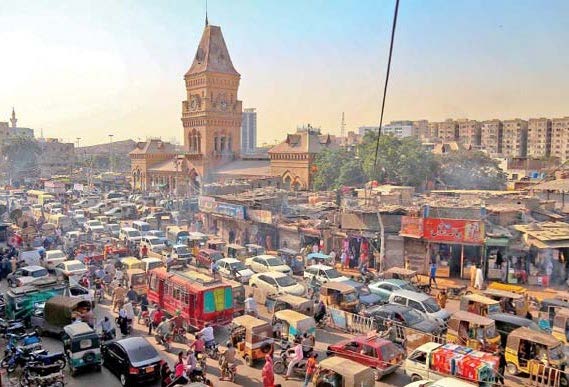Tutor – Asiya Sadiq*
Academic year 2020-21, semester 1, Brussels
Engagement: Urban Cultures
Designing Negotiable Public Architecture and Related Open Spaces
Via
Formal-Informal Interface in a Hyper Transforming Context
Case of Saddar Bazar in Karachi – Pakistan
“Public architecture and related open spaces are situated within the larger context of the city and the city is a living organism, within which all architecture, urban design, public open spaces and networks become integrated via formal and informal public engagement and an understanding of collective problem solving, finding innovative ways to reclaim and reimagine contemporary cities.”
Asiya Sadiq and Christophe Polack,
(The Rising Tide Exhibition Catalogue, Curated Naiza Khan, 2010, Artists Statement)
What Will We Do
Address challenges of social and physical inequities faced by public architecture and related open spaces design in fast transforming contexts. This studio will address the urban challenges, intricacies, complexities, and contextual realities of designing in a hyper transforming city like Karachi, a megapolis of 25 million. Karachi is a typical case of dualities triggered by formal design failures and informal design responsiveness which need recognition, recording and assimilation into the future designs of the city.
Situate appropriate public architecture and related open spaces design in a hyper transforming, super diverse, multifunctional context in the post colonial city centre of Karachi called Saddar Bazar. A marketplace contested by multiple realities and stakeholders, Saddar Bazar provides an exciting milieu for designing and reinventing the role of the designer. The ground realities of the area will be situated within global current debates like; globalization, neoliberalism, land scarcity and density, climate change, migrations, increasing populations, decreasing resources , multiple disparities, and impending pandemics like COVID – 19.
Propose innovative, sustainable and appropriate public architecture and related open spaces designs via spatial strategies and projects (architectural/urban design/development) to deal with the current challenges facing the architectural profession and professionals working in hyper transforming contexts like Saddar Bazar in Karachi – Pakistan
The Proposed Spatial Strategies and Designs will Aspire to Uncover, Address and Design Public Architecture and Open Spaces Solutions for:
− Transforming socio-spatial relationships in fast transforming societies grappling with; super diversity, modernity and tradition, political contestations, economic disparities, and environmental concerns.
− Transforming private, public, and collective spatial configurations reflected in formal and informal, spaces, networks, and practices.
− Potentials of adaptability, flexibility, negotiability, resilience and incrementality as means of sustainability.
− The integration of negotiable strategies as an integral part of design.
− Encouraging bottom-up, low cost / tech and innovative design practices.
− Formal and informal interfaces in the design process as means of innovation.
What are the Expected Studio Outcomes
− A Rigorous Reading and Analysis of the Stipulated Context and Topic(s)
− Development of a Conceptual Framework – supported by case studies, references, discussions, and critical thinking
− Development of Design Objectives, Strategies, Design Schemes
− Development of a design project; ranging all required design scales and architectural and urban design details
*Who Am I
Asiya Sadiq Polack is an Architect – Urbanist – Academic with two decades of experience in researching, theorizing and teaching about the intricacies of design of public architecture and open spaces in hyper transforming contexts. She is currently PhD scholar and teacher at KU Leuven Belgium and an Associate Professor at the Department of Architecture and Planning, NED University, Karachi. Her ongoing tripartite professional practice has included; practicing, teaching and researching / theorizing in the field of architecture, urban design/planning to adaptive reuse and revitalization of tangible and intangible heritage and design advocacy sustaining social and urban change. She has published and presented extensively at national and international forums.
asiya.sadiq@kuleuven.be; asiya@thearchitectspolak.org; www.thearchitectspolak.org

